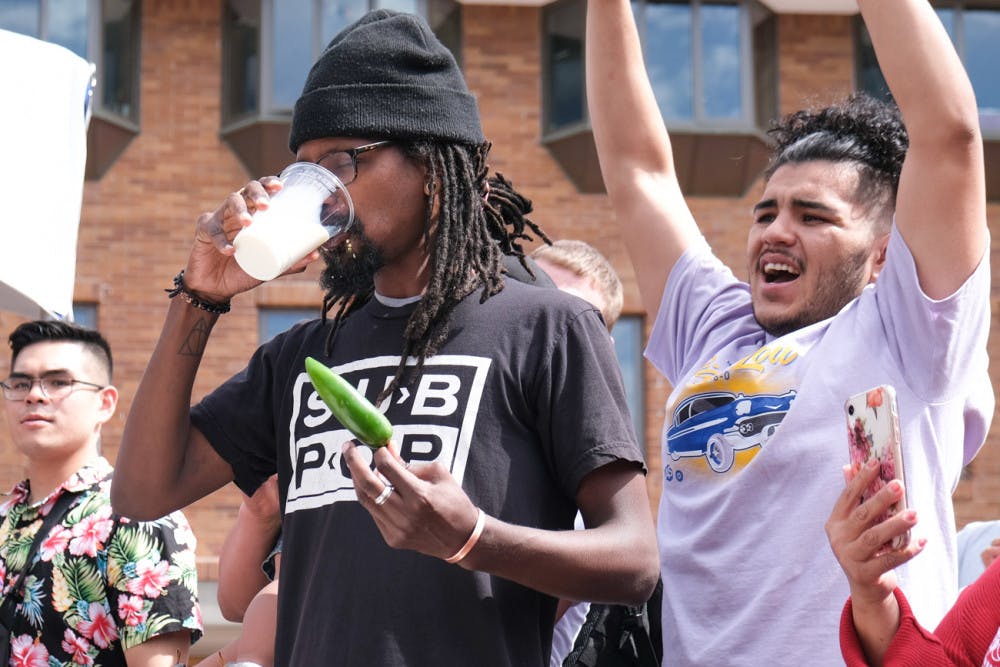By Mona Ghorbani-Aghdam Bold-colored lowrider vehicles and bikes made their way onto Red Square one by one as the sun beamed, music blasted and various food and art vendors filled the court. The "Ridin' Low in the 3-6-0” event was organized by Western’s chapter of Movimiento Estudiantil Chicanx de Aztlán, also known as MEChA. Over 60 cars were entered in the lowrider competition, which drew crowds of people from all across Washington state to Western’s campus on Sunday, May 20. Some participants traveled all the way from British Columbia to be part of this annual event. Joselyn Chavez, the co-chair for the lowrider committee and co-lead officer of MEChA, talked about the origins of the show, which started 19 years ago. “The students who originally started the lowrider show wanted it to be a community-based event,” Chavez said. According to Chavez, MEChA wanted to create an environment where younger generations can see themselves on a campus that is usually occupied predominantly by white students. What makes the event special isn’t just the cars. According to MEChA’s mission statement, one of the main issues that has always needed to be addressed is improving the state of education and expanding educational opportunities for Latinx youth. According to Samantha Urrea, co-chair for the lowrider committee and co-lead officer of MEChA., the planning for this annual event started as early as December. “We started the planning to get an idea of what we wanna do and when we wanna do it,” Urrea said. According to Chavez, Western claims the lowrider event but almost all the effort comes from MEChA. Cultural music and dance performances by Danza Azteca, Yolihuani, Mariachi de WWU, Filipino American Student Association, Baile Folklorico de WWU and Familia Rodriguez de Mount Vernon attracted the audience to the front of the stage. Steven Vogel, a participant who has competed in this event for 19 years, has been living the lowrider lifestyle since he could drive, he said. “It’s not a hobby like some people think, or for some people, it is,” Vogel said. “To people like me, it’s a way of life.” The lowrider cars are unique for more than just their gleaming paint jobs and decals. Many are also rigged with hydraulics and suspension air bags that allow the body of the car to be raised and lowered with a touch of a button. Vogel has been showing off his lowriders since 1986. He was a part of a car club that co-hosted the show with MEChA back in 2000, Vogel said. Once the car club parted ways with the lowrider event at Western, Vogel continued attending the shows. The winner of the Best in Cars award got to walk away with $250 and the winner of Best in Bikes award received $150. The other two awards were the Hop Contests, 2x pump for $300 and 1x pump for $250.







